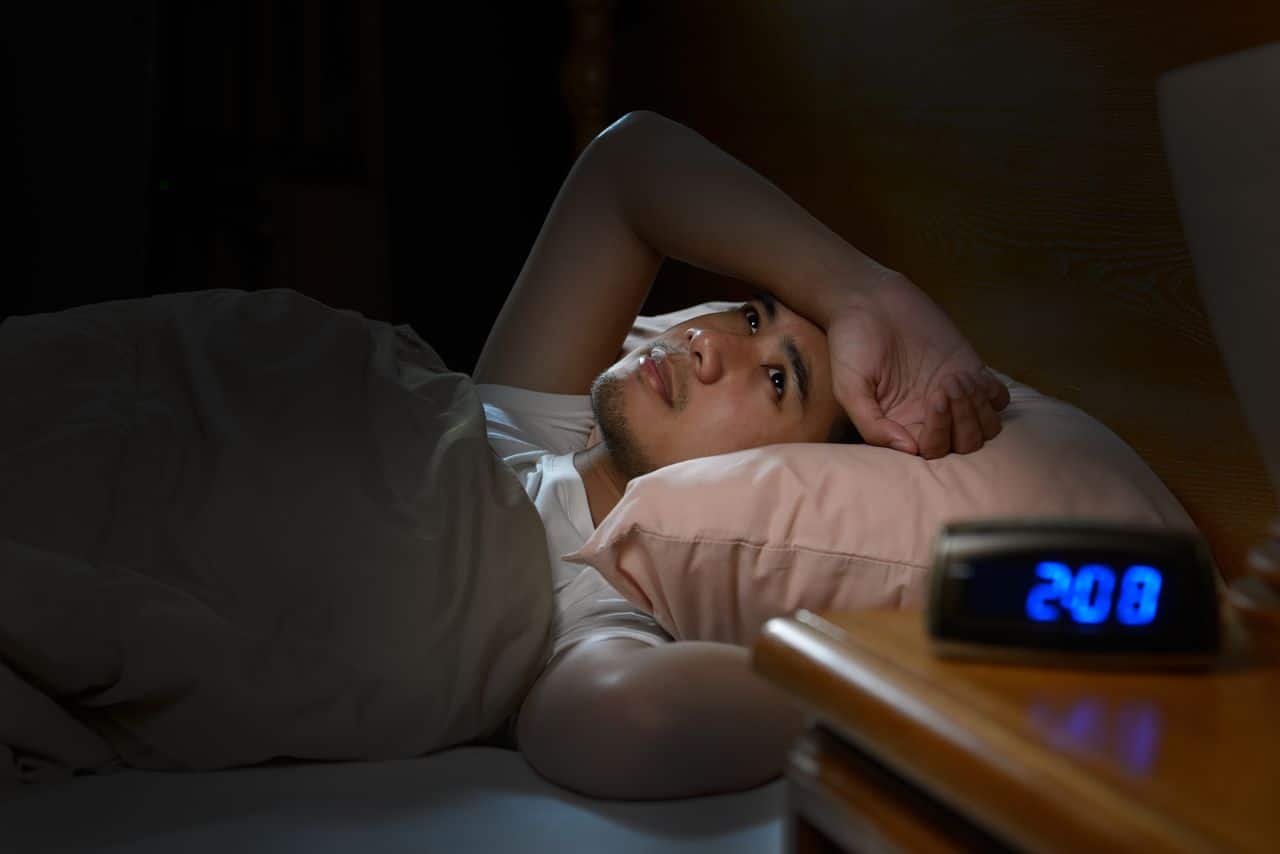[ad_1]
In today’s fast-paced lifestyle, sleep loss or insomnia is quite common. Be it the packed daily schedules, assignment deadlines, grief, or stress; they keep you from getting sleep. It can be extremely debilitating, causing disturbances to your emotional and physical well-being. Moreover, disrupted routines in a pandemic are causing a surge in insomnia.
Most new years come with a resolution of getting more sleep. To achieve that goal, try to get your lives back on track. But, before doing that, you need to understand everything about insomnia.
What is Insomnia?
Insomnia is a sleep disorder marked by difficulty falling asleep, poor sleep quality, and less sleep duration. It is a common condition that impacts your performance, health, energy level, and mood. Getting a full night of uninterrupted sleep might seem unachievable for insomniacs. Yet, surprisingly most people are unaware of the types of insomnia.
Chronic Insomnia
Chronic insomnia is sleeplessness that occurs at least three nights a week for more than three months. High levels of anxiety and stress mainly trigger it. Chronic insomnia shows a long-term pattern of trouble falling asleep.
Acute Insomnia
Acute insomnia can be short-term insomnia as it only lasts for a few days to a few weeks. However, it is the most common type of insomnia. You are likely to suffer from acute insomnia due to jet lag, bad news, shifting to a new place, or joining a new workplace.
Comorbid Insomnia
When physiological and psychological reasons cause sleeplessness, it comes under comorbid insomnia. Conditions like arthritis, back pain, stress, and anxiety can trigger it.
Onset Insomnia
It is onset insomnia if you’re finding it hard to fall asleep soon after hitting the bed. In other words, you find it troublesome in initiating sleep. In addition, lifestyle habits like stress, overwork and getting screen time before bed leads to this condition.
Maintenance Insomnia
Do you wake up during the middle of the night and find it hard to fall asleep again? Then you might be suffering from maintenance insomnia. It arises from the inability to maintain a regular and consistent sleep pattern.
Insomnia: Causes and Risk Factors
There are multiple causative factors for insomnia. In the majority of the cases, various factors are involved in triggering insomnia.
1. Spicy and Acidic Foods
People worldwide enjoy spicy foods. However, this culinary sensation can bring on heartburn and sabotage your sleep. Eating spicy or acidic foods right before bed makes you wake up with a burning sensation in the chest and throat. People who regularly ate a spicy or acidic meal at night took longer to fall asleep. It may also provoke disturbing dreams. Continuously experiencing an interrupted sleep cycle eventually leads to acute insomnia. You can keep a journal to write down and keep track of what food you ate on the day you had heartburn.
2. Caffeine
We all love our cup (or more than a cup) of caffeine, but do you know about caffeine’s connection to sleep problems? If you want to have a peaceful sleep, avoid sneaking in those caffeine sources at night. It is because drinking coffee or eating any caffeinated food before bed stimulates your brain instead of calming it. Excess caffeine consumption regularly leads to insomnia or worsen pre-existing insomnia. In addition, a study shows that taking caffeine 3 or 6 hours before bedtime has disruptive effects on sleep.
3. Medications
Insomnia can be a side effect of a medication you’re taking. Drugs cause daytime sleepiness and throw off your sleep schedule. For example, antidepressants, anti-asthma medicines, and blood pressure drugs interrupt sleep. Once you abruptly stop using these medications, you may experience withdrawal syndrome, making it difficult to fall asleep.
4. Stress
Exposure to chronic stress and traumatic situations tends to provoke sleeplessness. It can be concerned about work, school, family, life, health, or finance. Being in stressful situations heightens your alertness, makes the muscle stiff and keeps you up all night. It’s pretty difficult to fall asleep if your muscles and mind are unwilling to relax.
5. Medical Conditions
Pre-existing medical conditions may also trigger insomnia. For example, dementia makes you feel anxiety, confusion, and restlessness. They tend to show aggression around bedtime, making it harder to fall asleep. It leads to inconsistent sleep patterns and eventually insomnia. Pain from conditions like arthritis, back pain, fibromyalgia, and cancer keeps the patient awake all night. To complicate the issue, it will also interrupt your rest and prevent you from peacefully drifting off to sleep. In addition, people with Parkinson’s disease are more likely to suffer from sleep apnea, which disrupts the sleep cycle.
What Symptoms Should I Expect?
The set of symptoms associated with insomnia makes the condition easy to self-diagnose. If you’re someone with insomnia, you might experience one or more of the following symptoms:
- Trouble staying asleep
- Difficulty in falling asleep
- Irritability
- Mood changes
- Extreme fatigue
- Poor concentration
- Daytime sleepiness
- Not feeling refreshed after sleep
How Can I Treat Insomnia?
1. Medications
Medications such as sleeping pills and antidepressants provide a sedating effect. They work by immediately lowering the stress and anxiety levels, relaxing the mind, and helping you fall asleep. Suppose you’re experiencing short-term insomnia due to digestive problems and pain; certain medications alleviate the issues. Antidepressant drugs are mainly used when insomnia is secondary to anxiety or depression. Examples include Mirtazapine and Trazodone. Take sleeping pills only after medical evaluation and under the doctor’s guidance.
2. Meditation
Mediation is easy, free of cost, and goes hand-in-hand with your lifestyle. It can significantly improve insomnia and sleep patterns by reducing stress and keeping your emotions in check. In addition, meditation is safe to practice. You can start by devoting 15 minutes in the morning and evening for mindfulness meditation. In general, it promotes overall calmness to achieve peaceful sleep.
3. Melatonin Supplements
Medical professionals popularly use melatonin supplements to treat acute insomnia caused by jet lag. You may take it for occasional insomnia as melatonin maintains a healthy sleep-wake cycle. It puts you in a relaxed state beneficial to fall asleep.
4. Massage and Essential Oil
Using essential oils like lavender, cedarwood, and Roman Chamomile to massage your body, foot, and head will calm the body and mind. In addition, lavender oil effectively reduces pain, improves mood, and promotes sleep. Lavender tea is also a good option. If you’re someone with mild anxiety, taking lavender oil capsules improves your sleep pattern.
What to Expect From Insomnia During Pregnancy?
Nearly 75% of pregnant women experienced extreme insomnia during the third trimester. Most time, the onset of insomnia symptoms is in the second to third trimesters. So you can be rest assured that insomnia during pregnancy won’t harm your baby. Even so, chronic insomnia may lead to depression, stress, and gestational diabetes. In addition, the chances of prolonged labour and the need for a caesarean section might increase if you have insomnia late into pregnancy.
Hormonal changes are the prime cause of pregnancy insomnia. However, the following factors are equally contributing to disturbing sleep patterns.
- Leg cramps
- Disturbing and vivid dreams
- Headaches
- Pregnancy heartburn
- Frequent trips to the bathroom
- Morning sickness
- Inconsistent metabolism
- Pre-birth anxiety
- Uncomfortable due to the growing belly
You may manage pregnancy insomnia by avoiding caffeine and chocolate, clearing your mind from persistent worries, keeping the room at the preferred temperature, and stopping the screen time at least an hour before bed. Doctors may recommend magnesium supplements because of their muscle-relaxing power to help you sleep. In addition, a minimal dosage, around 1 mg, of melatonin, is prescribed to manage pregnancy insomnia. However, do not fake sleeping aids every night.
Will Insomnia Cause Further Complications?
Poor sleep from insomnia affects the body in multiple ways. Some people fall into substance abuse as they form a habit of taking too many sleep medications. However, if you receive timely treatment, then the chances of health complications are reduced.
1. Heart Problems
Persistent insomnia and poor rest to the body increases the risk of coronary heart disease, heart failure, and irregular heartbeats. The state of sleep deprivation makes it harder to follow a heart-healthy routine. Moreover, the increased stress due to insomnia is not suitable for your heart.
2. Mental Health Issues
Insomnia makes it ten times more likely to have depression. It also slows down your recovery process if you’re undergoing any therapy to recover from mental illness. Poor sleep and unwanted alertness from insomnia elevate your anxiety as well.
3. Lowered Immunity
If your body is not getting enough sleep and rest, the immune system also lacks defence mechanisms. Too little sleep makes it harder for your body to fight infections and stay healthy. It increases the chances of inflammation, which tends to lower your immune response.
4. Weight Gain
Lack of sleep makes you tired. You probably won’t feel like exercising, causing excess fat to build up. Furthermore, experts noticed that the desire to binge eat is elevated if you have insomnia. Lack of exercise accompanied by extra calories causes weight gain. It may even lead to obesity.
Can Food Make a Difference in Insomnia?
The type of food you eat, how much you eat, and when you eat affect the sleep cycle. Is it a good idea to snack before bedtime? Well, if you find yourself bingeing on high-calorie foods late at night, it makes it tougher to sleep. However, going to bed on an empty stomach makes insomnia worse. Therefore, go to bed after eating some food, but not too much. Given the complexity of sleep, you should follow a properly designed, balanced, and consistent diet. For example, the Mediterranean diet also helps sleep better.
Here’s a list of foods that help you get a night of uninterrupted sleep.
1. Tryptophan Rich Food
Tryptophan, an essential amino acid, shows sleep-inducing powers. It can be made into serotonin, which can, in turn, get converted into the melatonin hormone. Melatonin stimulates sleepiness and regulates your sleep-wake cycle. If you eat healthy carbs with tryptophan, your body can quickly bring in sleep-inducing serotonin. A serving of milk and whole-grain crackers are a healthy bedtime snack for an insomniac. Turkey is a good source of tryptophan. You can also find it in bananas, honey, seeds, nuts, milk, ground beef, and chicken.
2. Kiwi
The popular oval-shaped fruit from New Zealand may help lower insomnia. Researchers believe that kiwi fruit makes you sleep better owing to its antioxidant properties. According to a study, a person who ate two kiwis an hour before bedtime fell asleep faster and had a better sleep quality. Furthermore, the high serotonin levels in kiwi fruit reduce the delay in sleep onset and periods of wakefulness experienced during insomnia.
3. Fatty Fish
People who ate fatty fish such as salmon three times per week experienced improved sleep quality. It, in turn, helps you to achieve better daytime functioning. A healthy dose of omega-3 fatty acids and vitamin D in fatty fish helps you sleep by boosting serotonin levels. Don’t overlook that Vitamin D deficiency is associated with disrupted sleep patterns. Hence, adding fatty fish to your diet not only prevents vitamin D deficiency but may improve sleep quantity as well.
4. Tart Cherries
Besides being delicious, tart cherry juice helps people sleep. If you have insomnia, now may be the time to get a bottle of this ruby red juice. Regular use of tart cherry juice can induce better rest with less insomnia. The rich dose of melatonin and magnesium in tart cherry juice is the primary reason for its anti-insomnia activity. Drink two 100% tart cherry juice glasses a day after the evening meal without any added sugars. It will prompt you to fall asleep faster.
5. Golden Milk
Golden milk, also known as turmeric milk, is considered a cure-all drink in Ayurvedic medicine. With a strong turmeric scent and vibrant golden colour, golden milk is more or less a sleep potion. The presence of antioxidants, tryptophan, calcium, and casein makes you feel relaxed and stay asleep. You can easily make this concoction using readily available ingredients. Simply mix unsweetened milk of your choice with turmeric, grated ginger, cinnamon powder, and no more than a pinch of black pepper. Bring to a boil, simmer for about 10 minutes, and strain the drink.
Conclusion
Insomnia refers to the condition where you can’t fall asleep even while you want to. Or you simply fail to stay asleep long enough to feel refreshed and rejuvenated. It can be caused by stress, caffeine, spicy food, medications, and existing medical conditions. Insomnia hits harder during the second to the third trimester of pregnancy. Rather than letting it weigh on you, seek prenatal guidance to get better sleep and prevent potential complications.
Taking melatonin supplements can improve sleep patterns. However, it can help in the short run only. Medications, massage, essential oils, and medications aim to reduce insomnia. The food we eat plays a salient role in the quantity, quality, and efficiency of sleep. Our body requires melatonin hormone to regulate the circadian rhythm and promote healthy sleep. Food such as tart cherries, nuts, milk, honey, and kiwi boost melatonin conducive to sleep.
[ad_2]
Source link



